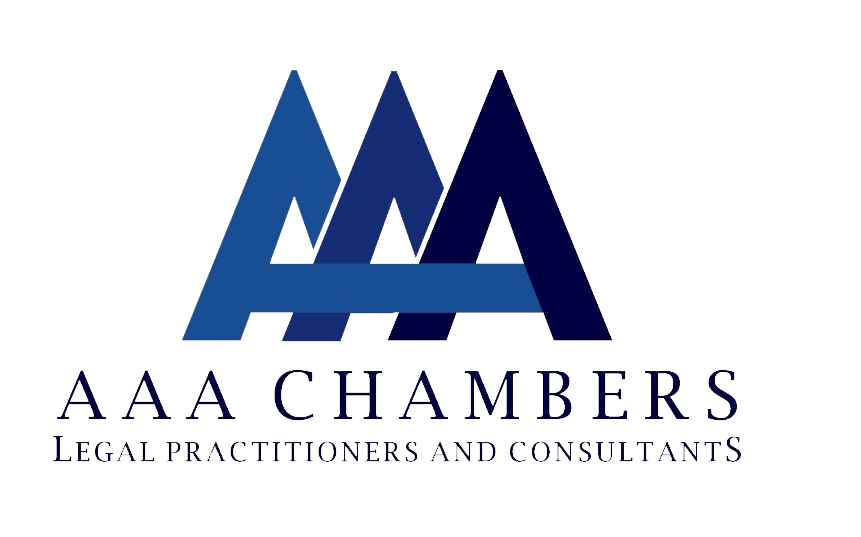Ms Nelly was advised to take a loan to start her business and to this effect, she recently got a loan of N5,000,000.00 (Five Million Naira) from her bank to be paid back within three years. Unfortunately, Ms Nelly died in the recent Ethiopian Airline plane crash and the bank has received the news of her death, however, the bank does not know how to go about recovering the loan Ms Nelly took since she is now deceased. This article will be analyzing the various means by which a creditor can recover its money when the debtor becomes deceased.
Introduction
In life one thing is certain – death; and when a person dies he/she ceases to be a juristic person, that is, someone who can sue or be sued. No action whatsoever can be maintained against him/her or for him/her in a representative capacity. See the case of APC v. INEC (2015) 8 NWLR (Pt. 1462) S.C. 531
When a person dies he/she leaves behind what is called an “estate”. An estate, according to Black’s Law Dictionary, is “the property that one leaves after death; the collective assets and liabilities of a dead person”. An estate includes a person’s bank accounts, landed properties, cars, etc. Simply put, it is anything the deceased person owns at the time of his death. Hence, in order to recover a deceased person’s debt, a creditor ought to take steps in getting its money from the estate of the deceased.
A creditor can go after the beneficiaries of a deceased debtor’s estate in order to recover the outstanding indebtedness of the deceased debtor. However, a creditor can recover from a beneficiary (of a deceased debtor’s estate) only to the extent the beneficiary benefited from the deceased’s estate.
Administration of Estates
Section 33 of the Administration of Estates Law of Lagos State provides that all real and personal estate of a deceased person are assets for the payment of his debts and liabilities. A person is said to have died intestate if he dies without making a will, and testate if he has a will. Where there is a will, the appointed executors of the will apply for probate. However, where there is no will the personal representatives of the deceased can apply for a grant of administration.
An application for grant of administration of an estate is made to the Probate Division of the Lagos State High Court. Persons who can apply to be administrators of an estate are as follows:
- Surviving spouse of the deceased
- Children of the deceased
- Parents of the deceased
- Brothers or sisters of the deceased of full blood
- Brother or sister of the deceased of half-blood
- Uncles and aunts of full blood or their children
- Creditors – Order 64 Rule 10 (a) of the High Court of Lagos State (Civil Procedure) Rules
It should be noted that this Law does not apply to the Estate of a deceased person whose affairs were regulated by customary law during his or her lifetime.

A creditor may enter a caveat (a notice to prohibit a grant of administration) in Probate Form 5 to challenge the grant of Letters of Administration or Probate (especially when properties in the estate were used as security for the loan obtained by the deceased). – Order 63 Rule 18 (4) of the High Court of Lagos State (Civil Procedure) Rules 2019. When the caveat is issued, the Probate Registrar is to notify the Applicant (for a grant of administration) who may then issue a “warning” in Probate Form 7 in response to the caveat. – Order 63 Rule 18 (8) of the High Court of Lagos State (Civil Procedure) Rules 2019.
A creditor may, by Originating Summons, commence an action in determining any question affecting his right or interest as it relates to the estate of the deceased. Order 64 Rule 9 (1c), (2a) and Order 5 Rule 4 (1) of the High Court of Lagos State (Civil Procedure) Rules 2019. Furthermore, a creditor may apply for and obtain an Order for the Administration of the personal or real estate of a deceased debtor. Order 64 Rule 10 (a) of the High Court of Lagos State (Civil Procedure) Rules.
*Probate actions are subject to the same Rules of Court as civil claims.
Proceedings in Bankruptcy
As earlier defined, a bankrupt person is one “who cannot meet current financial obligations”. Section 4 of the Bankruptcy Act provides for circumstances where a person will be deemed bankrupt as thus:
- When a debtor owes at least N2000 (Two Thousand Naira).
- When the debt owed is certain/stipulated and payable immediately or at a certain later date.
- When a debtor has committed an act of bankruptcy (an act that may cause his or her creditors to petition the court to declare him or her bankrupt) – See Sec. 1 of the Bankruptcy Act for examples of act of bankruptcy.
The Federal High Court is the court that has jurisdiction to determine matters relating to bankruptcy. The Bankruptcy Act provides steps a creditor may take in the circumstance where a debtor dies without liquidating his debts. Section 100 of the Bankruptcy Actprovides that where bankruptcy proceedings have commenced against a debtor and the debtor dies, the matter will continue as if he were alive; except the court orders otherwise.
Also, Section 109 provides that a creditor can apply by filing a petition for an order for the administration in bankruptcy of the estate of the deceased debtor. Once the order is granted by the court, the property of the debtor will be vested in the Official Receiver (an officer of the court who manages the assets of the debtor and repays loans from them) as trustee and he is duty-bound to immediately commence realization and distribution in accordance with the provisions of the Bankruptcy Act. – Sec. 109(3)
All properties and goods belonging to a bankrupt person at the commencement of the bankruptcy proceedings, or may be acquired by or devolve on him before he is discharged are divisible amongst his creditors. – Sec. 41
Priority of Payment of Debts
- Funeral and testamentary expenses incurred by the personal representatives of the deceased debtor.
- All debts due from the bankrupt to the State and all wages or salary not exceeding N300 due to an employee in respect of services rendered four months before the grant of the court order. However, under the Administration of Estates Law of Lagos State, the limit is N25,000.
- Landlord or another person who has seized or has a right of lien over the property or goods of the debtor (i.e. a secured creditor).
- All other debts proved in bankruptcy proceedings shall be paid side by side/simultaneously.
- Where there is a surplus after the settlement of the above debts, it is to be applied in payment of interest at the rate of 1% above the prevailing bank rate on all debts proved in the bankruptcy proceedings.
- Husband or wife’s claim.
*Sec. 109 (5) & Sec 36 of the Bankruptcy Act and Part 1 of the Schedule to the Administration of Estates Law of Lagos State

Mareva Injunction
This is one major way in which a creditor can take urgent or immediate steps in recovering his/her money. The effect of the Mareva injunction is to prevent the dissipation of the assets of the deceased that can/will be used in the recovery of the deceased’s indebtedness.
Asearlier defined, an injunction is a court order prohibiting someone from doing some specified act or commanding someone to undo some wrong or injury. Mareva injunction originated in England, United Kingdom. The name “Mareva” is gotten from the case of “Mareva Compania Naviera S.A. v. Int’l Bulkcarriers S.A”, the first English case where this type of injunction was applied.
By nature, the Mareva injunction is an anticipatory and preservative interlocutory injunction/order of court (that is an injunction ordered pending/before the determination of the suit in court) and is used in circumstances that require urgent and immediate action, because the purpose of this injunction is to prevent the dissipation of assets that can/will be used in enforcing judgment.
Initially, the Mareva injunction was only used to seize the assets of foreign nationals in cases where the Plaintiff anticipates that the defendant, who is a foreign national, might try to evade the law/courts by dissipating their assets within the court’s jurisdiction and fleeing to their own country. However, this scope of application has been broadened to include amongst many, recovery of debts.
Retirement/Life Insurance Benefits
Section 98 of the Pension Reform Act wholly excludes pension funds and retirement benefits from the liquidation process. Thus a creditor cannot claim the pension funds or retirement benefits of its debtor.
There is no provision in the Insurance Act that expressly prohibits creditors from claiming proceeds of a debtor’s life insurance policy. Sec. 57 of the Insurance Act provides that every life insurance policy must be in the interest of a named beneficiary. As earlier established, where a beneficiary of a deceased debtor is not a party/guarantor of the deceased’s loan agreement then he cannot be liable to repay such debt. Thus, it is my conclusion that a beneficiary of a life policy of a deceased debtor ought not to be liable to pay the debt of the deceased.
Section 8 of the Limitation Law of Lagos State provides that a person has a period of six (6) years (beginning from when the cause of action arose) within which to enforce any simple contract. Thus where six years elapse a creditor will no longer have a right of action to recover his money from the estate of a deceased debtor.
Recommendation & Conclusion
It is my recommendation that the insurance law should be amended to reflect a stipulated percentage limit from which creditors can claim from life policies of deceased debtors to recover their money, especially where they have explored other means or recovery without getting any result.
In conclusion, recovery of debt when the debtor is deceased is not an uphill task. The concerned creditor just has to be proactive in considering the options available to him and then take proper steps in that regard.
Definition of General Terms
- Debtor – One who owes an obligation to another, especially an obligation to pay money.
- Creditor – A person or entity with a definite claim against another, especially a claim that is capable of adjustment and liquidation.
- Administrator – A person appointed by the court to manage the assets and liabilities of an intestate decedent (a dead person).
- Estate – The property that one leaves after death; the collective assets and liabilities of a dead person.
- Beneficiaries – A person designated to benefit from a legal arrangement or instrument.
- Bankrupt – A person who cannot meet current financial obligations; an insolvent person.
- Injunction – An
*All definitions are from the Black’s Law Dictionary 7th Edition


Leave a Reply